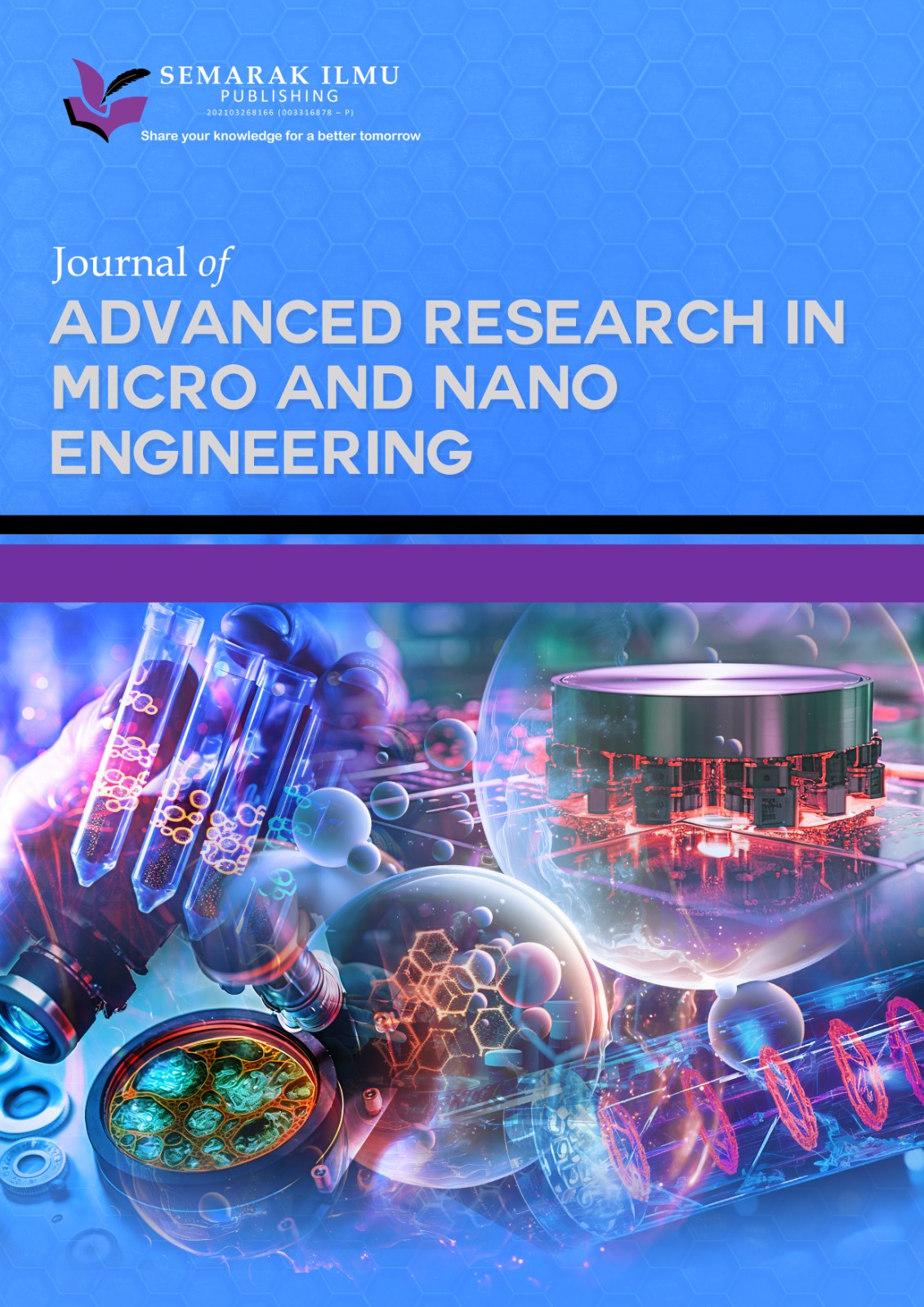Investigating the Effect of Deacetylation Temperature on the Characterization of Chitosan from Crab Shells as a Candidate for Organic Nanofluids
DOI:
https://doi.org/10.37934/arfmts.103.2.5567Keywords:
Demineralization, deproteination, deacetylation, chitosan, crab shell waste, scaffoldAbstract
Chitosan has been broadly utilized in bone scaffold production because of its antibacterial qualities, low toxicity, biodegradability, biocompatibility, and ability to aid regeneration processes in wound healing. In this work, chitosan was produced from crab shell waste through demineralization, deproteination, and deacetylation, utilizing HCl 1:7 (v/v), NaOH 3%, 1:10 (v/w), and NaOH 50%. The aim of this study is to examine the deacetylation temperature’s impact towards the crystallinity index, chemical bond, degree of deacetylation, and morphology of chitosan synthesized. The deacetylation procedure was conducted for eight hours at temperatures of 100°C, 120°C, and 140°C. The synthesized chitosan was evaluated by utilizing XRD, FTIR, and SEM methods. According to the findings of this investigation, deacetylation at a temperature of 140 °C produced the highest degree of deacetylation, resulting in the highest quality chitosan. In addition, compared to other obtained chitosans, the shape of this result of synthesis is homogenous. At a deacetylation temperature of 140°C, the amounts of deacetylation degree, and crystallinity index of the chitosan were, in order, 81%, and 44%.
Downloads



























